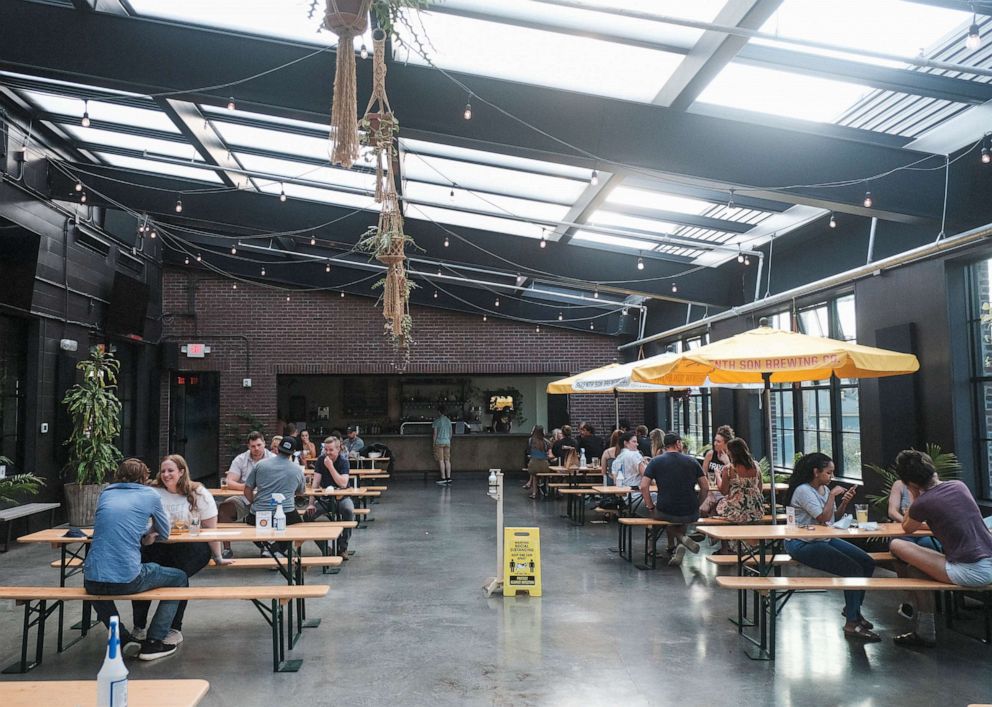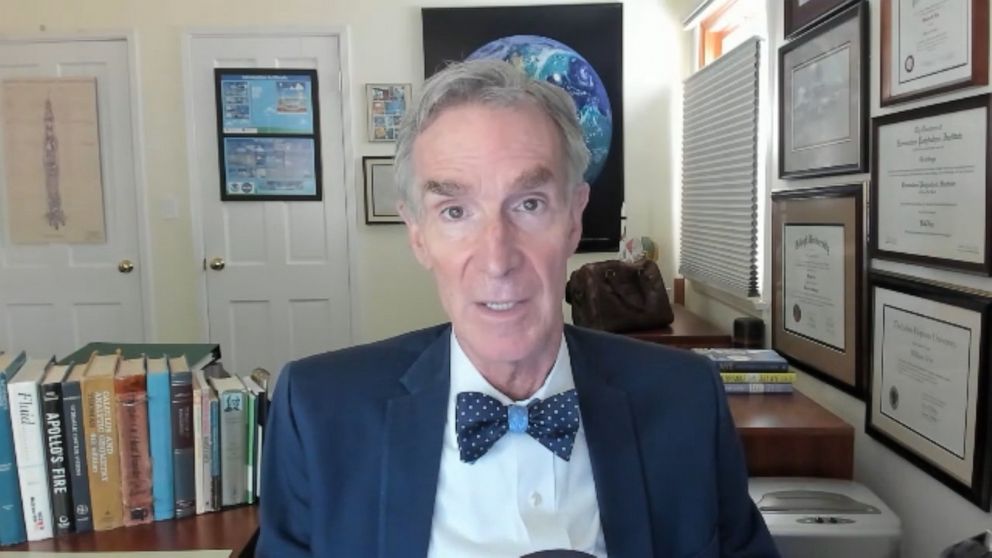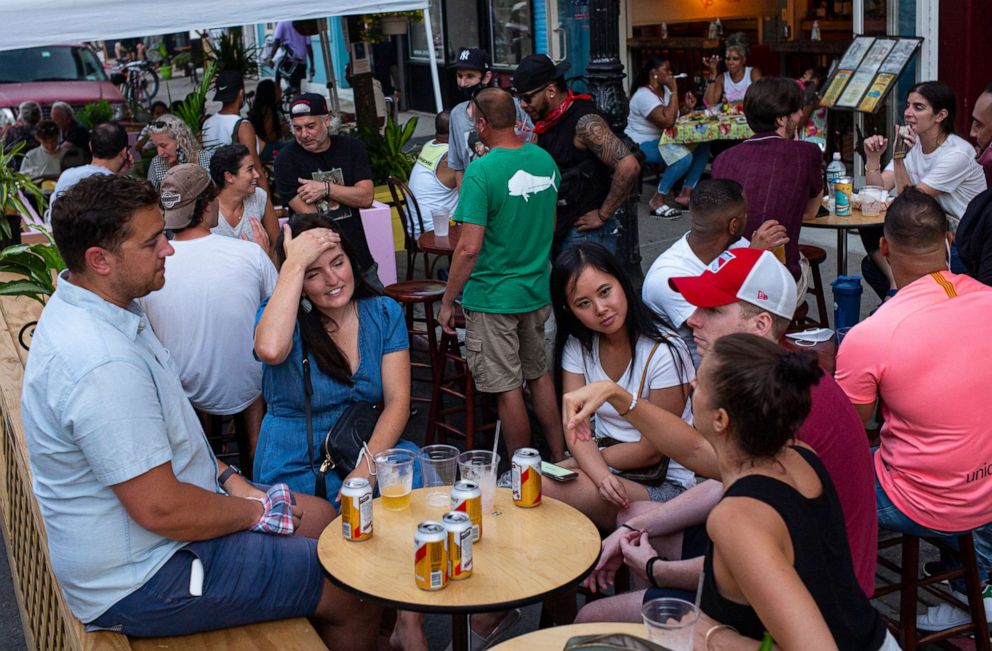Bill Nye’s message to young revelers defying COVID-19 guidance
"It's really a matter of life and death," Nye said.
Bill Nye the Science Guy has a simple message for many of the same people who grew up learning from his television show: choose to stay at home and you will save lives.
“If we can't cool it, a lot fewer of us will get through this… It’s really a matter of life and death,” he told “Nightline.” “You’re spreading this virus [and it’s] killing people, so don’t do it. For crying out loud, this is not rocket surgery.”
Large gatherings have ignited a debate between experts urging the public to wear masks and social distance and people who are tired of being cooped up at home, eager to go out and socialize.
Several states have closed down bars and nightclubs as lawmakers worry that partygoers are contributing significantly to the coronavirus pandemic. Fifteen states are facing an increase in cases and over 150,000 people nationwide have now died from the virus, COVID-19.
Nye described the air we breathe as a fluid through which the virus spreads. He said air has its own viscosity that keeps droplets from a human’s sneeze or breath in the air for longer than some people might believe.
Nye referred to research that has suggested the virus can linger in the air for at least five minutes before falling to the ground. A study published in May found that in closed, stagnant air environments, speech droplets remained in the air for between eight and 14 minutes.
A sneeze, he said, can propel contagions up to 30 feet.

“It's very unlikely that if you're 30 feet away, you'd get enough so-called viral load -- get enough virus particles -- on your face where you'd be sure to get coronavirus,” he said. “However, [if] you're at 5 meters, it's four times as likely… That's why everybody's talking about social or physical distancing. Staying a few feet or meters apart makes a huge difference in whether or not you inhale this stuff.”
He said nightlife is especially risky because “people are so close together and the air is not moving. There's no wind to disperse the particles.”
Then, there’s the additional effects of alcohol on people’s behaviors.
“The other thing that happens at bars [is] some people's inhibitions go down,” he said. “When you go to a bar and have a couple drinks and take your mask off and start shouting at each other, it's very likely you'll transmit this disease.”
But the risk extends far beyond spreading COVID-19 at any particular gathering.
He pointed out that when people come together, the proximity and interaction makes it possible for the people present to get sick. In turn, this can lead to more people who "cross paths with you at the grocery store, on the. sidewalk, anywhere."
He acknowledged people all over the world are waiting for businesses to reopen and to reconnect with others in person, but he says there’s a way to do it safely.

“If you want to reopen the economy, if you want to go to a bar and hang out with your friends, as so many of us like to do, then wear a mask now and stay home for six weeks till we get this thing tamped down and under control,” he said. “If you can manage to sit 20 feet apart from each other, OK. But if you go to an enclosed space with no mask on and people carrying on, getting their inhibitions lowered, there's a very good chance you will leave the world worse for everybody.”
Nye said he’s been disappointed with the spread of disinformation surrounding COVID-19 guidelines.
“It's very troubling,” he said. “Science education is more important now than ever, in my opinion. I mean, this is not controversial … [what] we want everybody to do is learn to think critically.”
“Masks are not a form of oppression; they’re a form of civil rights,” he said, adding that masks protect the wearer from other people’s contagions and protect the wearer from spreading germs to others.

“You're not allowed to run stop signs when you're driving a car. You're not allowed to drive on the wrong side of the street, because it just would be a mess,” he said. “In the same way, you're not allowed to walk around without a mask on when you're outdoors.”
Nye has no doubt life will return to normal but he warned against defying guidelines in the meantime.
“The model that we can look to [that] is perfectly analogous is the Spanish flu. After five years, the people who were still alive went back to live in the way they always lived,” he said. “The reason people didn't talk about the Spanish flu so much in the 1920s and 30s … was because they were embarrassed. They were embarrassed by their behavior.”“If you are out there acting irresponsibly and spreading this thing around … there's a good chance you too will be embarrassed about it someday,” he said.




